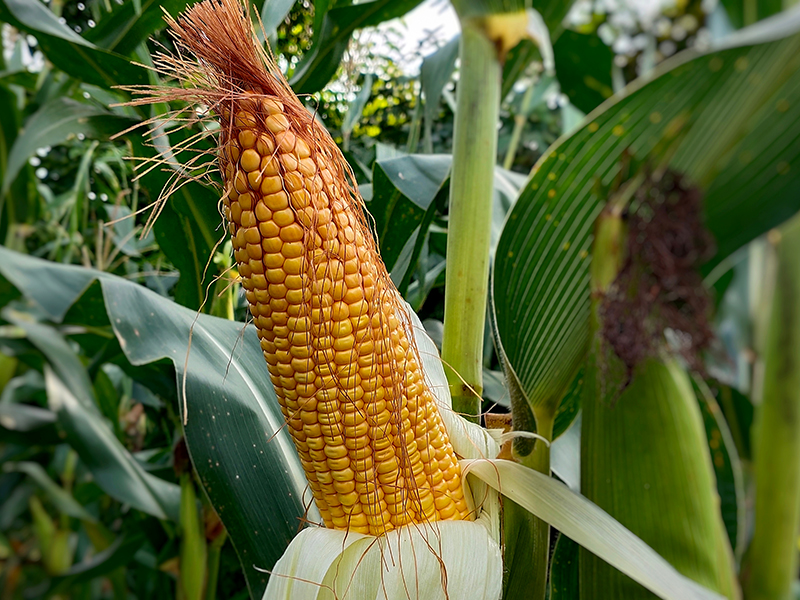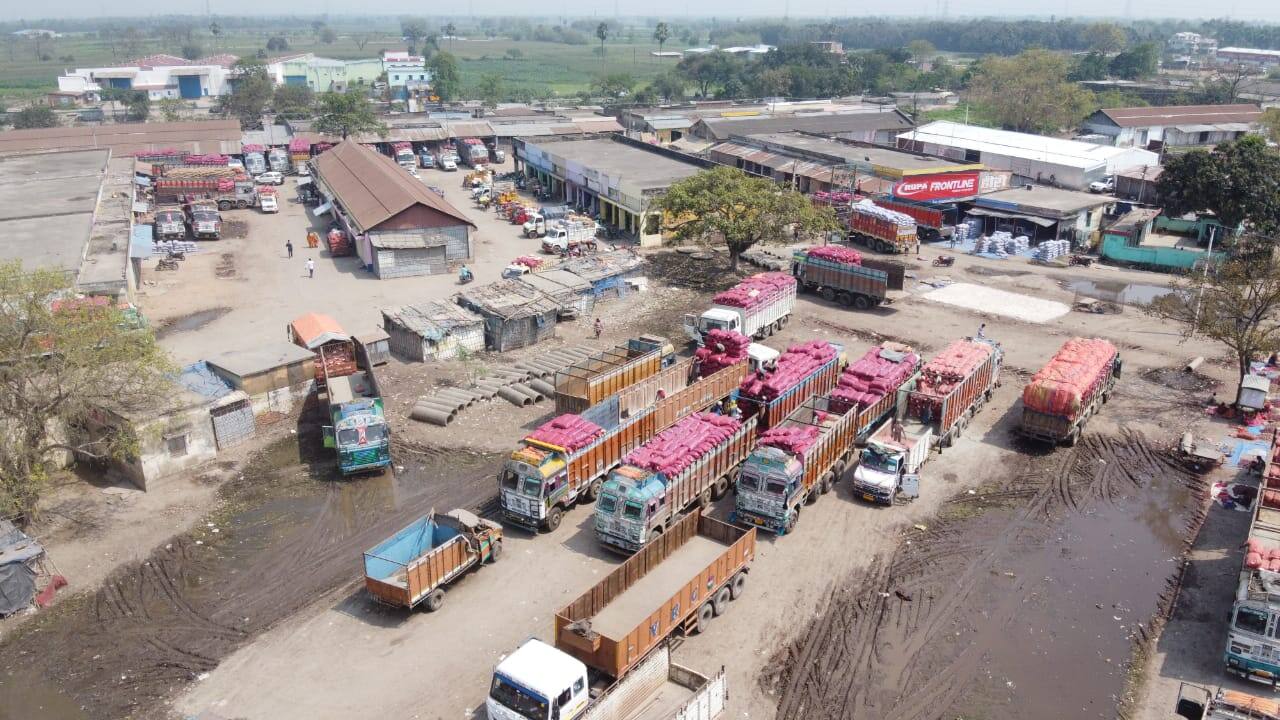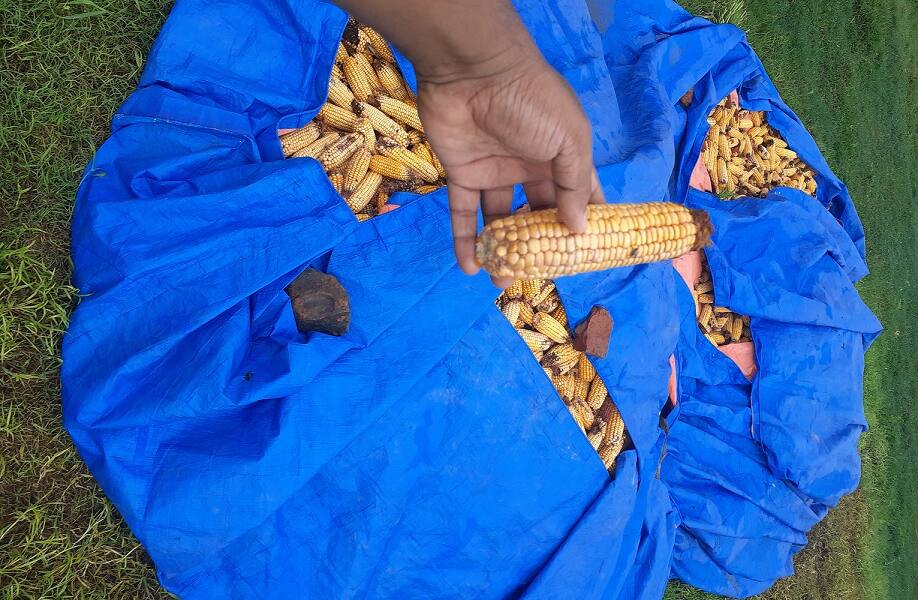How COVID-19 has amplified woes of Bihar's maize farmers
The Kosi region, of which Purnia is a part, is one of the highest producers of maize in the country. This year, farmers were forced to sell their crop for a maximum of Rs 1,200 per quintal, while the minimum was Rs 900. Last year, the price was Rs 2,200 per quintal.
 Image: Shutterstock
Image: Shutterstock
After leasing one bigha (1 bigha= 27,240 square feet in Patna) of land, Indrakant Thakur, a farmer in Dhamdaha village in Purnia district of Bihar, had sowed maize. However, after the harvest, he could only get Rs 1,000 per quintal even though the government had fixed the minimum support price (MSP) at Rs 1,760 per quintal. He stated that he couldn't even recover the cost he had incurred.
Like him, many farmers in Bihar have been affected by the COVID-19 pandemic and irregular rainfall. He added that he had hoped to earn around Rs 35,000 from the yield, but instead, he had to sustain a loss of about Rs 8,000. He mentioned that the situation is so dire that he is unable to support his cattle and he is looking to get a job as a daily labourer in a nearby town.
Last year, the price of maize was around Rs 2,200 per quintal, which encouraged many to take up maize farming. The yield from a bigha of land is close to 30 quintals, and farmers earn up to Rs 65,000 in one crop cycle. Indrakant added that unseasonal rain during the harvest period reduced his yield, and he could only get 22 quintals. He mentioned that since there weren't many traders this year owing to the COVID-19 pandemic, they had to sell at low rates.
The Kosi region, of which Purnia is a part, is one of the highest producers of maize in the country. This year, farmers were forced to sell their crop for a maximum of Rs 1,200 per quintal, while the minimum was Rs 900. As the rates are so low, several farmers have not sold their produce and are hoping for corrective measures by the government. Another farmer from Dhamdaha village Arvind Poddar stated that the cost of threshing corn has increased to Rs 200 and if he sells his crop at such rates, he'd have to incur a huge loss.
When asked why the rates reduced to almost half of what they were last year, he said that the lockdown induced by the coronavirus is the main reason. He mentioned that every year, agents arrive at Purnia's Gulabbagh Mandi and buy maize, which is used for the manufacturing of corn-based products like nutrition supplementary drinks, cornflakes and animal feed.
 Gulabbagh Mandi, Purnia Bihar
Gulabbagh Mandi, Purnia BiharIndranath mentioned that this is the situation in eight districts of the region. He mentioned that owing to the lockdown, most farmers are in a loss, but small farmers, who had leased agricultural land for farming, were hit the hardest.
Exploitation Basu Mitra, a local journalist who covers agricultural issues, stated that Gulabbagh mandi of Purnia is one of the largest grain markets in Asia, but it didn't see much business during the lockdown.
Although the government had exempted farmers from the lockdown, the absence of outside traders affected them the most, he mentioned. “The farmers became completely dependent on the local traders, who took full advantage of the helplessness of the farmers,” he stated.

He added that the poultry sector is one of the biggest buyers of maize, but since there was fake news at the beginning of the pandemic that chickens spread coronavirus, their sales decreased as well.
Owing to the fall in rates, farmer associations in Bihar are demanding government procurement. The Kosi Navnirman Manch (KNM) in June wrote to Bihar CM Nitish Kumar, asking for government procurement. However, as their demands were ignored, the KNM filed public interest litigation with Patna High Court. In response to the PIL, Dayanand Mishra, Joint Secretary, Department of Food Supplies, Bihar, told the court through a counter-affidavit that according to the rules of the central government, his department is only obliged to make government purchases of those crops, which are distributed under the Public Distribution System and midday meal schemes.
In response, the petitioner Mahendra Yadav, the convener of the KNM, in his affidavit told the court that the Bihar government can purchase all coarse grains at MSP.
While the hearing was carried out on July 13, the bench of Justice Sanjay Karol has reserved the verdict and no verdict has been pronounced.
(The author is Patna-based freelance journalist and a member of 101Reporters.com, a pan-India network of grassroots reporters)
Follow our series on Farmers Fighting COVID-19 here.
Original Source: https://www.moneycontrol.com/news/india/how-covid-19-has-amplified-woes-of-bihars-maize-farmers-6015291.html